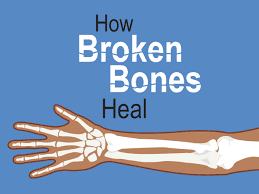I would go even further and suggest that healing is not just about caring for others' physical injuries, but for their mental and emotional traumas as well, which can often be just as debilitating.
In the martial arts world, too, we see both extremes. Modern martial arts these days seem to promote "practical and tactical" quasi-militaristic models to prepare their participants for the MMA cage or "urban warfare". Many of them tout their military origins, wearing BDUs and adding firearms and other lethal training methods into their tactical response programs. They often appeal to the fear of their student base by portraying a violent, post-apocalyptic world where each daily commute or trip to the supermarket is a potential fight for survival. Many systems are now incorporating sports science, nutrition and peak performance coaching in their programs in an effort to achieve greater outcomes.
To me, none of this is inherently bad. The Martial Arts is a continuum of "Martial" and "Arts" with many points along the curve for each person to choose what best suits him/her.
That being said, I think every instructor has an inherent moral obligation to teach their students to behave in an ethical manner. We should emphasize the importance of right action in the right moment as a means of protecting ourselves and others, as well as recognizing our responsibility to be compassionate and caring to as many others as we possibly can. For example,in the original movie "The Karate Kid", the antagonist Cobra Kai have the motto of "Strike First. Strike Hard. No Mercy", which is used as an example of an aggressive mentality that equates modern social situations with battlefield combat. While looking cool to the impressionable young boys, ultimately many of them discover that the Cobra Kai's moral framework is inappropriate in suburban Southern California.
In contrast, the movie presents Miyagi-do karate as having "respect for all life" and we see recurring examples of Mr. Miyagi's compassion, even to his supposed "enemies". We viewers clearly understand the moral high ground by the end of the film, and like in most cinema, the better man wins and is rewarded for developing good character as modeled by his teacher. It is interesting to note that both instructors, John Kreese and Mr. Miyagi, were decorated war veterans - Mr. Miyagi receiving the medal of honor in WW2 and John Kreese earning a field commission in special forces in Vietnam. What is clear is that both men, both martial arts masters, had very different philosophies based on their upbringings and wartime experiences.
It is often the case that we are stopped from action by fear. We feel afraid and so we fail to do what we should to defend ourselves or others. Paralyzed by fear we watch as bad events unfold, despite the fact that we could have prevented or minimized them. As Yamamoto Tsunetomo points out in his book on bushido, Hagakure (hidden leaves), the purpose of "living life as though one is already dead" is to provide us the freedom to fulfill our destiny as warriors - not just in service to one's superiors, but in service to all others. Yamamoto is really cautioning readers to work diligently to let go of fear so they can achieve their own greatness.
I firmly believe that respect and compassion are the foundation stones of all good martial arts training in any serious dojo, and those teachings should be at the heart of what we instructors model in our own behaviors and reinforce in our communities.
Healing others heals us.
